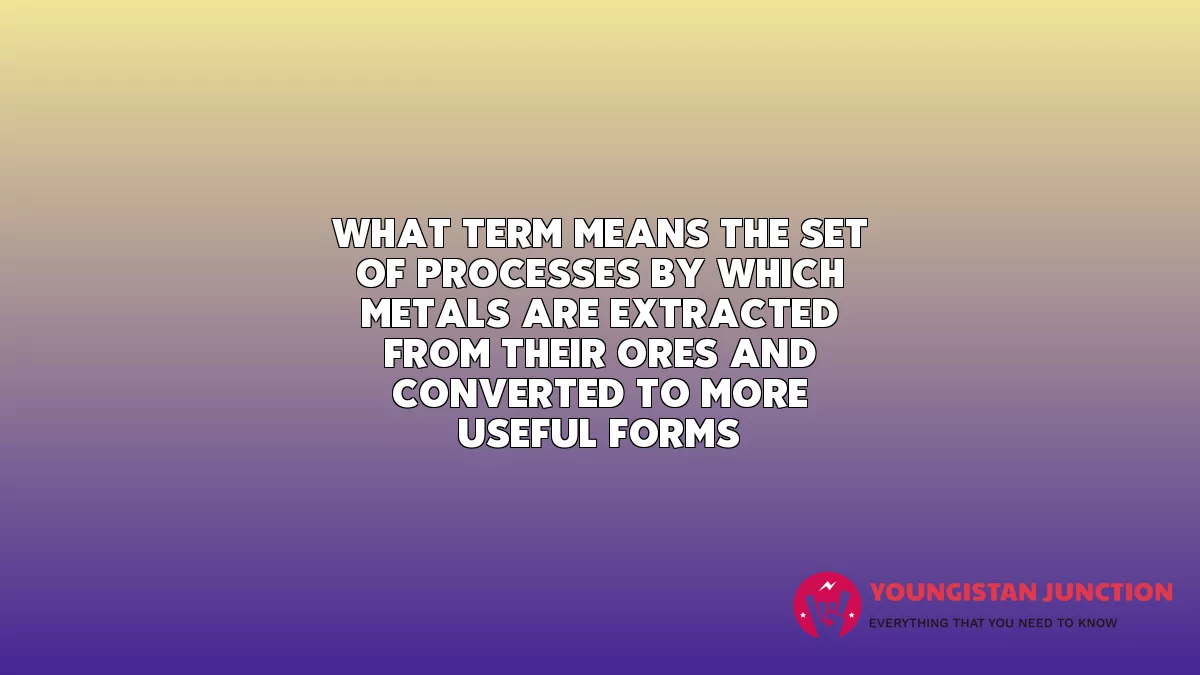What term means the set of processes by which metals are extracted from their ores and converted to more useful forms?
- Correct Answer: ceramics
- metamorphisis
- introversion
- metallurgy
Explanation: Very few of the transition metals are found in nature as free metals. Consequently, almost all metallic elements must be isolated from metal oxide or metal sulfide ores. Metallurgy is the set of processes by which metals are extracted from their ores and converted to more useful forms. Metallurgy consists of three general steps: (1) mining the ore, (2) separating and concentrating the metal or the metal-containing compound, and (3) reducing the ore to the metal. Additional processes are sometimes required to improve the mechanical properties of the metal or increase its purity. Many ores contain relatively low concentrations of the desired metal; for example, copper ores that contain even 1% Cu by mass are considered commercially useful. After an ore has been mined, the first step in processing is usually to crush it because the rate of chemical reactions increases dramatically with increased surface area. Next, one of three general strategies is used to separate and concentrate the compound(s) of interest: settling and flotation, which are based on differences in density between the desired compound and impurities; pyrometallurgy, which uses chemical reduction at high temperatures; and hydrometallurgy, which employs chemical or electrochemical reduction of an aqueous solution of the metal. Other methods that take advantage of unusual physical or chemical properties of a particular compound may also be used. For example, crystals of magnetite (Fe3O4) are tiny but rather powerful magnets; in fact, magnetite (also known as lodestone) was used to make the first compasses in China during the first century BC. If a crushed ore that contains magnetite is passed through a powerful magnet, the Fe3O4 particles are attracted to the poles of the magnet, allowing them to be easily separated from other minerals.
More Random Questions
Ans: 36%
Ans: 50th
Ans: Maharashtra
Ans: anaerobic respiration
Ans: magnetite
Ans: Japan
Ans: Pakistan
Ans: Vehicular emissions
Ans: IMF
Ans: Environmental policies
Ans: Real Madrid
Ans: asexual
Ans: Odisha
Ans: Eightfold Path
Ans: dry air mass

